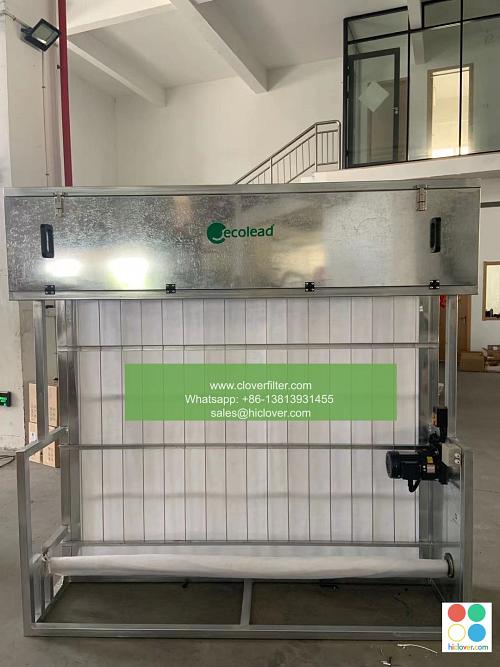Innovative Lab Solutions: Automatic Roll Air Filters at the University of Michigan

The University of Michigan has implemented a cutting-edge solution to improve air quality and reduce maintenance costs in their laboratories. The introduction of Automatic Roll Air Filters has revolutionized the way they manage airborne contaminants, creating a safer and more efficient working environment for researchers and students. In this article, we will delve into the world of lab filtration systems, exploring the benefits, applications, and advantages of these innovative air purification solutions.
Introduction to Automatic Roll Air Filters
Automatic Roll Air Filters are designed to provide a continuous supply of clean air, minimizing the presence of particulate matter, volatile organic compounds (VOCs), and other airborne pollutants. These filters utilize a rolling mechanism, which automatically replaces the filter media as it becomes saturated, ensuring a consistent and reliable air filtration process. This technology is especially useful in high-containment laboratories, where the risk of biohazardous exposure is higher.
Application Areas and Benefits
The University of Michigan has successfully integrated Automatic Roll Air Filters into various lab settings, including:
* Biological laboratories: protecting researchers from biohazards and infectious agents
* Chemical laboratories: removing harmful fumes and VOCs
* Precision engineering laboratories: preventing particle contamination and ensuring cleanroom conditions
The benefits of Automatic Roll Air Filters are numerous:
* Improved indoor air quality (IAQ): reducing the risk of respiratory problems and other health issues
* Increased laboratory productivity: minimizing downtime and maintenance costs
* Enhanced safety features: providing a reliable and consistent air filtration system
Highlighting Various Application Areas
Automatic Roll Air Filters have a wide range of applications, including:
* Pharmaceutical research: ensuring cleanroom conditions and protecting researchers from hazardous materials
* Medical research: preventing the spread of infectious diseases and biohazards
* Nanotechnology research: maintaining ultra-clean environments and preventing particle contamination
The University of Michigan’s adoption of Automatic Roll Air Filters demonstrates their commitment to providing a safe and healthy working environment for their researchers and students. By investing in these innovative lab solutions, they are able to improve air quality, reduce maintenance costs, and enhance laboratory productivity.
Conclusion
In conclusion, Automatic Roll Air Filters are a game-changer for lab filtration systems, offering a reliable and efficient solution for managing airborne contaminants. The University of Michigan’s successful implementation of these filters is a testament to their effectiveness in improving indoor air quality, reducing maintenance costs, and enhancing laboratory productivity. As research institutions continue to push the boundaries of scientific discovery, the importance of innovative lab solutions like Automatic Roll Air Filters will only continue to grow.

